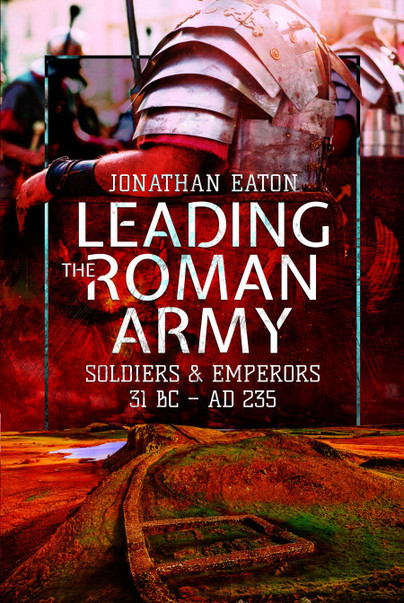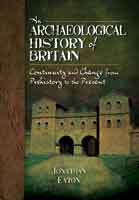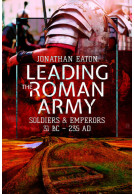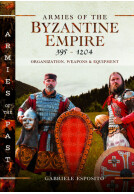Leading the Roman Army (Paperback)
Soldiers and Emperors, 31 BC – 235 AD
Imprint: Pen & Sword Military
Pages: 224
Illustrations: 20 colour illustrations
ISBN: 9781526797032
Published: 15th November 2021
Last Released: 17th March 2022
(click here for international delivery rates)
Order within the next 1 hour, 45 minutes to get your order processed the next working day!
Need a currency converter? Check XE.com for live rates
| Other formats available | Price |
|---|---|
| Leading the Roman Army Hardback Add to Basket | £19.99 |
| Leading the Roman Army eBook (13.8 MB) Add to Basket | £6.99 |
The Roman imperial army represented one of the main factors in the exercise of political control by the emperors. The effective political management of the army was essential for maintaining the safety and well-being of the empire as a whole. This book analyses the means by which emperors controlled their soldiers and sustained their allegiance from the battle of Actium in 31 BC, to the demise of the Severan dynasty in AD 235.
Recent discoveries have revolutionised our understanding of the Roman army. This study provides an up to date synthesis of a range of evidence from archaeological, epigraphic, literary and numismatic sources on the relationship between the emperor and his soldiers. It demonstrates that this relationship was of an intensely personal nature. He was not only the commander-in-chief, but also their patron and benefactor, even after their discharge from military service. Yet the management of the army was more complex than this emperor-soldier relationship suggests.
An effective army requires an adequate military hierarchy to impose discipline and command the troops on a daily basis. This was of particular relevance for the imperial army which was mainly dispersed along the frontiers of the empire, effectively in a series of separate armies. The emperor needed to ensure the loyalty of his officers by building mutually beneficial relationships with them. In this way, the imperial army became a complex network of interlocking ties of loyalty which protected the emperor from military subversion.
"Eaton has produced an interesting and unique study."
Journal of Classics Teaching
Overall, Dr Jonathan Eaton provides a worthy addition to the existing scholarship on the Roman military. The decision to take a thematic approach makes his study stand out, and from reading through the text, it elevates the study and its positioning within the current field.
ByzRoma1453
Read the full review here
Featured in
Military Heritage, Summer 2021
A curious and interesting book.
Miniaturas JM
Read the full Spanish review here
...this is an important read for those with an interest in the Roman Army during the early empire.
The NYMAS Review, Winter 2020-2021
Leading the Roman Army is an excellent addition to Roman Army studies.
Beating Tsundoku
Read the full review here
Review by Jason Hubbard
Irregular magazine, issue 14 Volume 2/Winter 2020
This was an informative read, especially in regard to how the military and politics mixed. It also showed how at times, a glowing military career could be hindrance and at times dangerous. It’s definitely one of those books that’ll appeal to Roman historians and will be a valuable read for those gamers who play a Roman army.
The emperors and soldiers were frequently the same and the post of emperor could also be a poisoned chalice to be avoided by generals. The replacement of the Republic with the Empire did not remove the Senate, but the Legions were used as a power base by emperors – Very Highly Recommended
Firetrench
Read the full review here
This book takes a different approach to the Roman army to most, looking at the relationship between the Emperor and his soldiers during the period of the Principate, examining how the army was actually led, how discipline was imposed, what political influence the army actually had, and the direct relationship between the Emperor and his soldiers.
History of War
Read the full review here
If you are interested in this era and the Army that propped it up then this is an excellent book to lead you in.
Army Rumour Service (ARRSE)
Read the full review here
“It is wise to defer to a man who has thirty legions at his command”. This book describes the complex relationships between the Emperors and their soldiers that provided the foundation for power and reward within the Roman Empire. It is a well balanced view of the role of the Emperor, largely involved in a proactive relationship that soldiers would understand and attach to, whilst placing irksome matters such as discipline in the hands of officers, thus distancing the Emperor from such unpleasantness. A well written examination of the subject.
Michael McCarthy
Michael McCarthy. Battlefield Guide
About Dr Jonathan Mark Eaton
Dr Jonathan Eaton is Academic Registrar at Teesside University. This book is based on his PhD thesis, which was undertaken at Queen’s University, Belfast. His research interests focus on the interrelationship between power, politics and violence in the ancient world, and has previously published An Archaeological History of Britain: Continuity & Change from Prehistory to the Present (Pen & Sword, 2014).

















